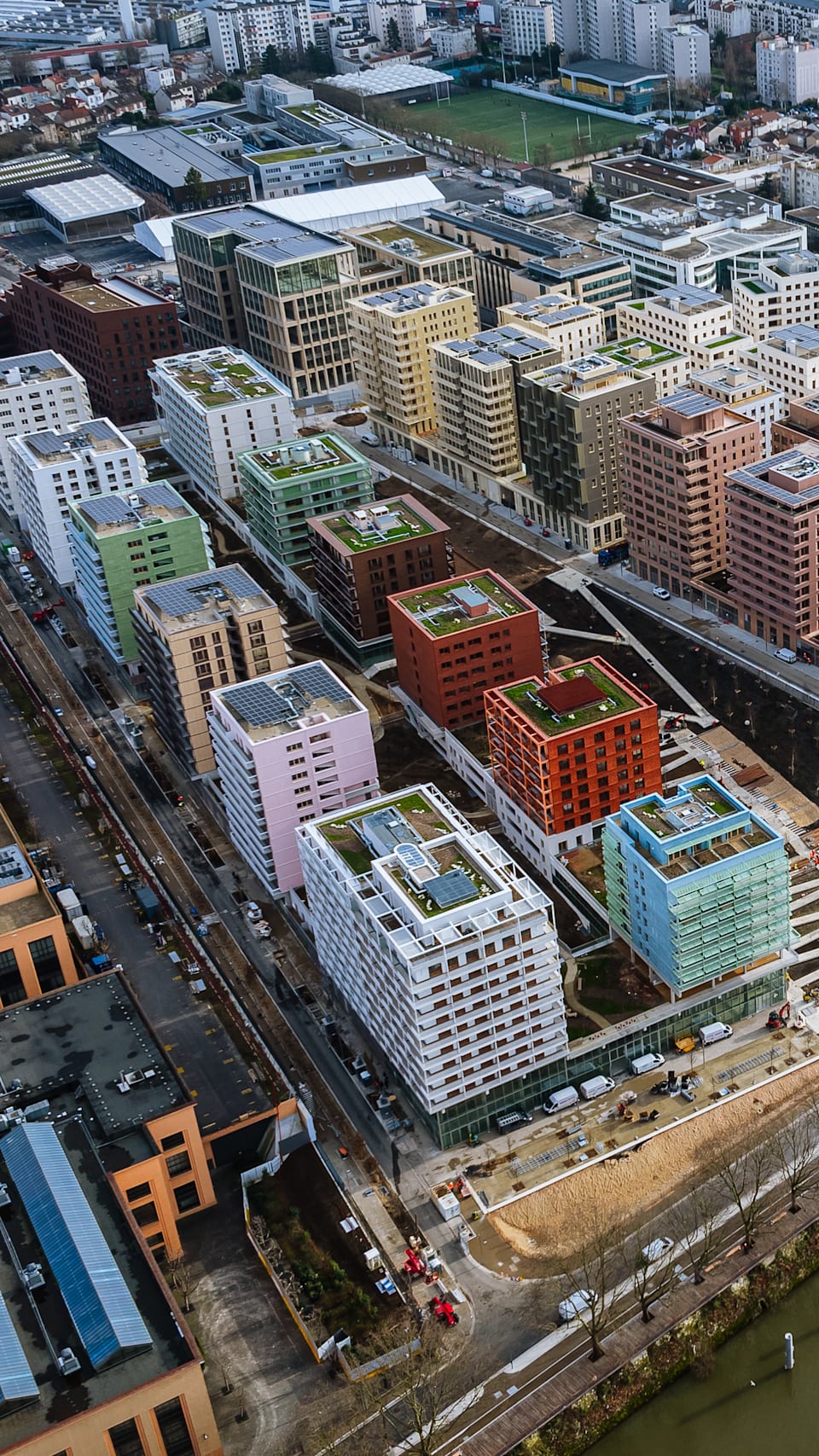
Halving the carbon footprint of the Games
Since its candidature, Paris 2024 has been convinced that major sport events must take their responsibilities towards climate change. Our goal is ambitious: to halve the carbon footprint of the Games compared with the average for London 2012 and Rio 2016.
CHANGING THE MODEL: FROM A POST-GAMES ASSESSMENT TO A PRE-GAMES TARGET
To reduce the Games’ impact on the climate, it has adopted an approach that offers a radical departure from that of previous major sports events, moving from a post-event assessment of its carbon footprint with offsetting activities to the pre-Games definition of a carbon impact reduction target and strategy.
Paris 2024 has set itself the goal of halving the carbon footprint of the Games compared with the average of London 2012 and Rio 2016, i.e. 3.5 million tonnes of CO2 equivalent.
To measure its objective of halving the carbon footprint of the Games, Paris 2024 has chosen to take into account all the carbon emissions of the event, both direct and indirect, including spectator travel.
Paris 2024 has considered this as its starting point, in order to guide the choices it has been making since the bidding phase and continues to make throughout the cycle of preparation for the organisation of the Games.
ACTIONS TO REDUCE CARBON EMISSIONS INTEGRATED INTO ALL OPERATIONS
For the first time in the history of the Games, Paris 2024 has anticipated the Games' carbon emissions and developed a method for monitoring them throughout the event, using a tool that now combines almost 10,000 data points.
Paris 2024 and its ecosystem are on course to meet this objective thanks to the measures to avoid, reduce and control carbon emissions that were initially defined and that have been implemented in all areas of Games organisation:
- Construction: a single competition venue built for the needs of the Games, the Aquatic Centre, and left as a legacy to the people of Seine-Saint-Denis
- Fourniture: favouring rental over purchase and anticipating the second life of equipment
- Energy: connecting the Games sites to the public electricity grid and giving priority to renewable energy sources to power them
- Catering: offering a more responsible diet with twice as much plant-based food in meals.
To encourage other sporting events to follow this dynamic, Paris 2024 has launched the ‘Event Climate Coach’, an application designed to help organisers understand and reduce the carbon impact of their events.
CARBON AVOIDANCE AND CAPTURE PROJECTS
Alongside its ambition to reduce the carbon emissions of the Games, Paris 2024 has developed a funding programme for projects aimed at avoiding and capturing carbon emissions, which will aim to offset unavoidable Games-related emissions.
In France, Paris 2024 has chosen to finance 4 forestry projects through the Low Carbon Label: a new forest project (1,340 ha in total) on the Pierrelaye-Bessancourt plain in the Ile-de-France region, and three projects to restock degraded forests, in Montmorency (15 km from the Stade de France), in the Vosges and in the Aisne.
**At international level, Paris 2024 has carefully selected a number of projects that comply with ADEME rules and criteria on voluntary carbon offsetting**and have positive impacts that resonate with the values of Paris 2024 and sport, such as health, gender equality, education and the protection of biodiversity. The Paris 2024 international programme is funding the implementation of nine projects, all close to the equator, which is one of the areas hardest hit by climate change. These projects meet the best international certification standards and provide large-scale transformation. Find out more about these projects.
*In line with recommendations on so-called ‘carbon offsetting’ projects and in agreement with ADEME (the French agency for ecological transition), Paris 2024 has chosen to no longer use the term ‘carbon neutrality’. Nevertheless, it remains convinced that the financing of projects to combat climate change must continue.














